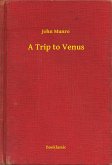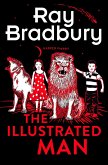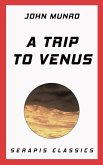In John Munro's A Trip to Venus (1897), the narrator, an engineer, an astronomer and his daughter travel by a newly invented flying machine to Venus and Mercury. On Venus they find a Utopian civilization, and the narrator falls in love.
Dieser Download kann aus rechtlichen Gründen nur mit Rechnungsadresse in A, B, BG, CY, CZ, D, DK, EW, E, FIN, F, GR, HR, H, IRL, I, LT, L, LR, M, NL, PL, P, R, S, SLO, SK ausgeliefert werden.









